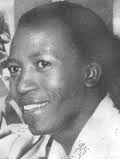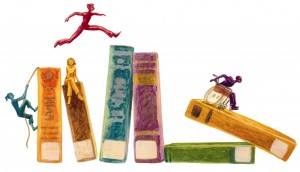[Our previous series of articles on valluvar had created a great deal of interest among our readers, and we now publish a series of three articles by A.N.Kandasamy on what he regards as unique in Valluvar. The second and third installments of this series will be publsihed in the coming weeks. – EDITOR, Tribune]
 The final impression that scholars and writers who write on Valluvar leave in the minds of their readers is that he is either an outstanding moralist of the stoic-philosopher type or a didactic poet on ethics. But to me this is a grossly wrong estimation of one of the great thinkers of the world, a secular philosopher with a unique outlook in many ways, not just an author of a few hundreds of ethical aphorisms, but how is it that this well-unintentioned, in fact adolatary under-estimation has gained such currency among writers and readers as well? Perhaps the fact that the early translators of Kural were Christian missionaries like the Rev.G.U.Pope and Rev.W.H.Drew has something to do with it.
The final impression that scholars and writers who write on Valluvar leave in the minds of their readers is that he is either an outstanding moralist of the stoic-philosopher type or a didactic poet on ethics. But to me this is a grossly wrong estimation of one of the great thinkers of the world, a secular philosopher with a unique outlook in many ways, not just an author of a few hundreds of ethical aphorisms, but how is it that this well-unintentioned, in fact adolatary under-estimation has gained such currency among writers and readers as well? Perhaps the fact that the early translators of Kural were Christian missionaries like the Rev.G.U.Pope and Rev.W.H.Drew has something to do with it.
It is the opening section of Thirukural ARAM or VIRTUE («Èõ) that has a appealed to these gentlemen as the cream of Valluvar’s thought. The Second and Third sections deal with Politics and Love respectively and the vocation of these translators must have had a limiting influence on their appreciation of these sections.


 கரோபோ மோசெஸ் மொட்ஸிசி (Karobo Moses Motsisi ) என்ற இயற்பெயரைக் கொண்ட காஸே மொட்ஸிசி தென்னாபிரிக்காவைச் சேர்ந்த ஊடகவியலாளரும் எழுத்தாளரும் ஆவார். 1932 ஆம் ஆண்டு, ஜோஹன்னர்ஸ்பர்கில் பிறந்த இவர், அங்கேயே கல்வி கற்று பின்னர் சிறிது காலம் தென்னாபிரிக்காவின் கௌதெங்க் மாகாணத்திலுள்ள ப்ரிடோரியா எனும் நகரத்தில் ஆசிரியராகக் கடமையாற்றியுள்ளார். அத்தோடு ‘ட்ரம் (Drum) இதழில் ஊடகவியலாளராகப் பணியாற்றியதோடு ட்ரம் (Drum), த கிளாசிக் (The Classic), த வேர்ல்ட் (The World) ஆகிய இதழ்களில் தொடர்ச்சியாக எழுதி வந்துள்ளார். 1977 ஆம் ஆண்டு, தனது 45 ஆவது வயதில் காலமான இவரது படைப்புக்களையெல்லாம் ஒன்று சேர்த்து ‘ராவன்’ பதிப்பகமானது, 1978 ஆம் ஆண்டு ‘காஸே & கோ (Casey & Co)’ எனும் முழுத் தொகுப்பாக வெளியிட்டுள்ளது.
கரோபோ மோசெஸ் மொட்ஸிசி (Karobo Moses Motsisi ) என்ற இயற்பெயரைக் கொண்ட காஸே மொட்ஸிசி தென்னாபிரிக்காவைச் சேர்ந்த ஊடகவியலாளரும் எழுத்தாளரும் ஆவார். 1932 ஆம் ஆண்டு, ஜோஹன்னர்ஸ்பர்கில் பிறந்த இவர், அங்கேயே கல்வி கற்று பின்னர் சிறிது காலம் தென்னாபிரிக்காவின் கௌதெங்க் மாகாணத்திலுள்ள ப்ரிடோரியா எனும் நகரத்தில் ஆசிரியராகக் கடமையாற்றியுள்ளார். அத்தோடு ‘ட்ரம் (Drum) இதழில் ஊடகவியலாளராகப் பணியாற்றியதோடு ட்ரம் (Drum), த கிளாசிக் (The Classic), த வேர்ல்ட் (The World) ஆகிய இதழ்களில் தொடர்ச்சியாக எழுதி வந்துள்ளார். 1977 ஆம் ஆண்டு, தனது 45 ஆவது வயதில் காலமான இவரது படைப்புக்களையெல்லாம் ஒன்று சேர்த்து ‘ராவன்’ பதிப்பகமானது, 1978 ஆம் ஆண்டு ‘காஸே & கோ (Casey & Co)’ எனும் முழுத் தொகுப்பாக வெளியிட்டுள்ளது. 
 தொடக்கத்தில் தனி மனிதர் வாழ்வில் இதழியல் துறையை ஆச்சர்யத்துடன் பார்த்தவர்ர்கள் அறிவியல் முன்னேற்றத்தால் அவற்றின் மூலம் நாளுக்கு நாள் செய்திகளை அறிய விழைந்தனர். இதழியல் துறையின் முன்னேற்றத்திற்கு அறிவியல் துறை முக்கியமான ஒன்றாக கருதப்பட்டது. இதன் மூலம் செய்தி பாரிமாற்றமானது எளிதாக மாறியது. அதன் தொடர்ச்சியாக ஒலி, ஒளி (ரேடியோ, தொலைக்காட்சி) மூலமும் பின்பு கணினி தோன்றிய பிறகு அச்சுத்துறையில் மாற்றம் ஏற்பட்டதால் இதழியல் மேலும் பல படிநிலை உருமாற்றம் பெற்றது. இவ்வாறு தோன்றிய இதழ்கள் இணையத்தில் மூலம் உலகத்தினை ஒருகண் சிமிக்கையில் இணைக்கும் இணையம் பாலமாக உள்ளது. இவ்வாறு தோன்றிய இணைய இதழ்களில் நேரடியாக வெளிவந்த இதழ்களும் இணையத்தில் அரங்கேற்றம் பெற்றன. இவ்வாறு தோன்றிய இணைய இதழ்களின் தோற்றத்தையும் , வளர்ச்சியையும் இக்கட்டுரையில் காணலாம்.
தொடக்கத்தில் தனி மனிதர் வாழ்வில் இதழியல் துறையை ஆச்சர்யத்துடன் பார்த்தவர்ர்கள் அறிவியல் முன்னேற்றத்தால் அவற்றின் மூலம் நாளுக்கு நாள் செய்திகளை அறிய விழைந்தனர். இதழியல் துறையின் முன்னேற்றத்திற்கு அறிவியல் துறை முக்கியமான ஒன்றாக கருதப்பட்டது. இதன் மூலம் செய்தி பாரிமாற்றமானது எளிதாக மாறியது. அதன் தொடர்ச்சியாக ஒலி, ஒளி (ரேடியோ, தொலைக்காட்சி) மூலமும் பின்பு கணினி தோன்றிய பிறகு அச்சுத்துறையில் மாற்றம் ஏற்பட்டதால் இதழியல் மேலும் பல படிநிலை உருமாற்றம் பெற்றது. இவ்வாறு தோன்றிய இதழ்கள் இணையத்தில் மூலம் உலகத்தினை ஒருகண் சிமிக்கையில் இணைக்கும் இணையம் பாலமாக உள்ளது. இவ்வாறு தோன்றிய இணைய இதழ்களில் நேரடியாக வெளிவந்த இதழ்களும் இணையத்தில் அரங்கேற்றம் பெற்றன. இவ்வாறு தோன்றிய இணைய இதழ்களின் தோற்றத்தையும் , வளர்ச்சியையும் இக்கட்டுரையில் காணலாம்.